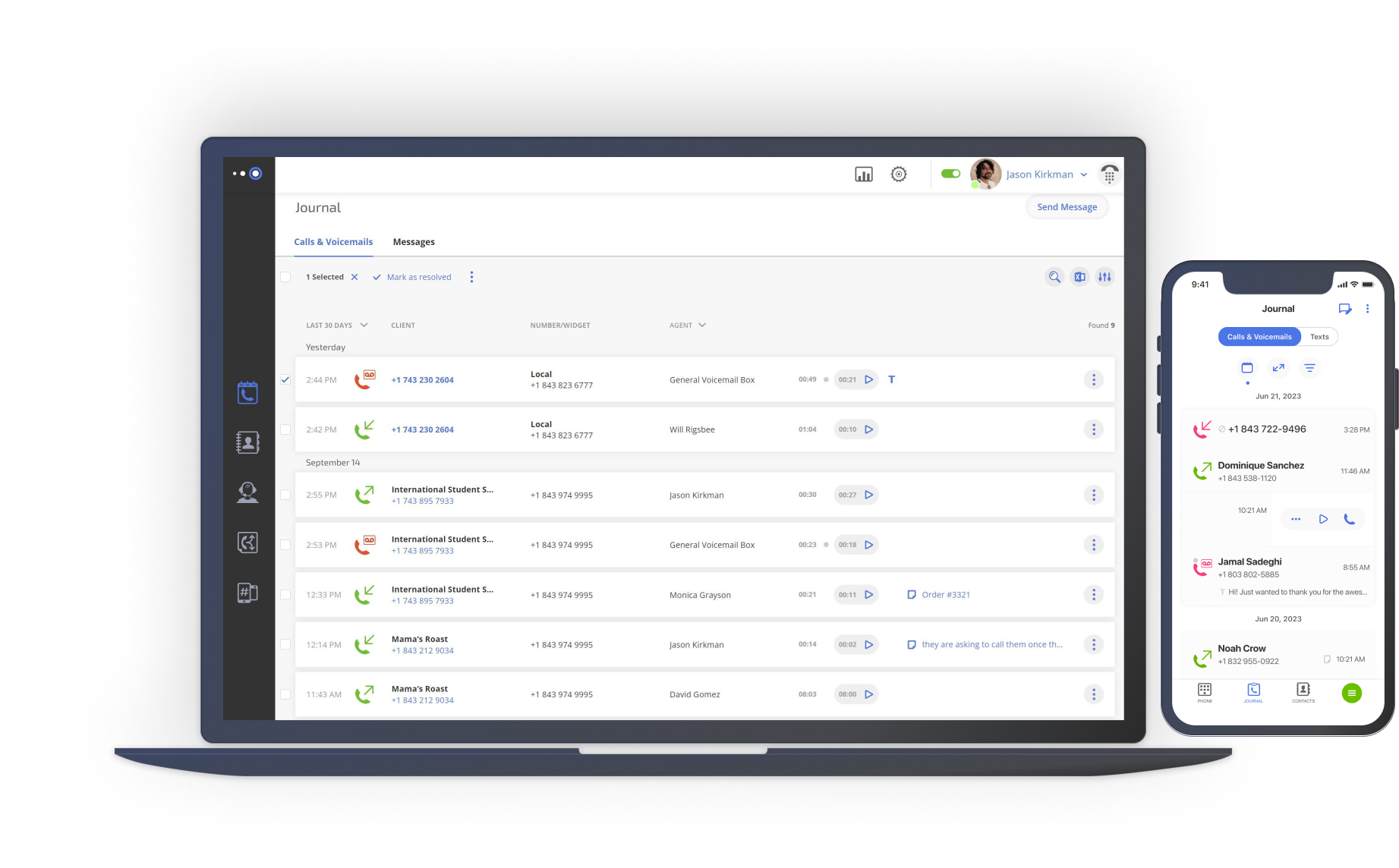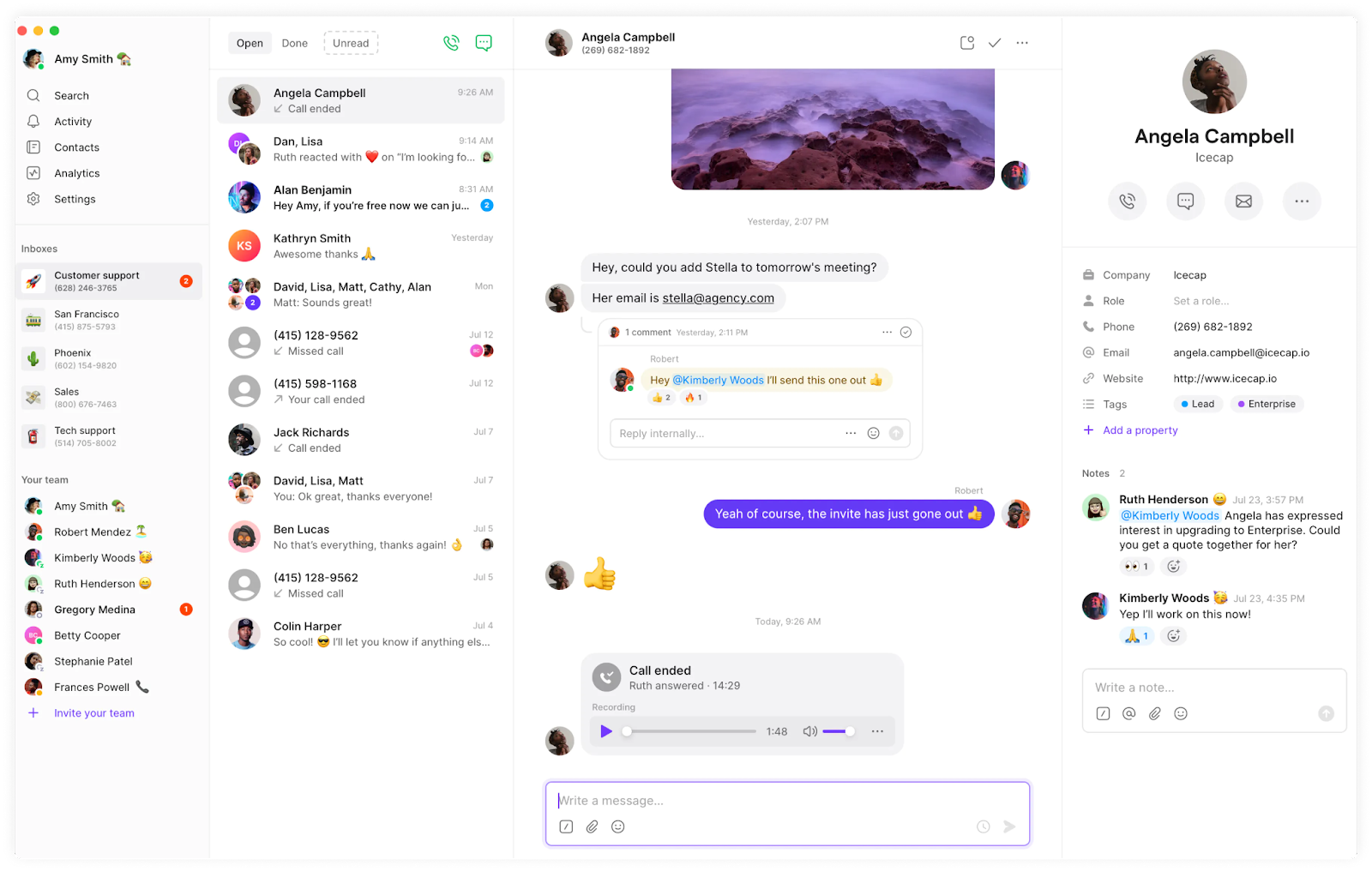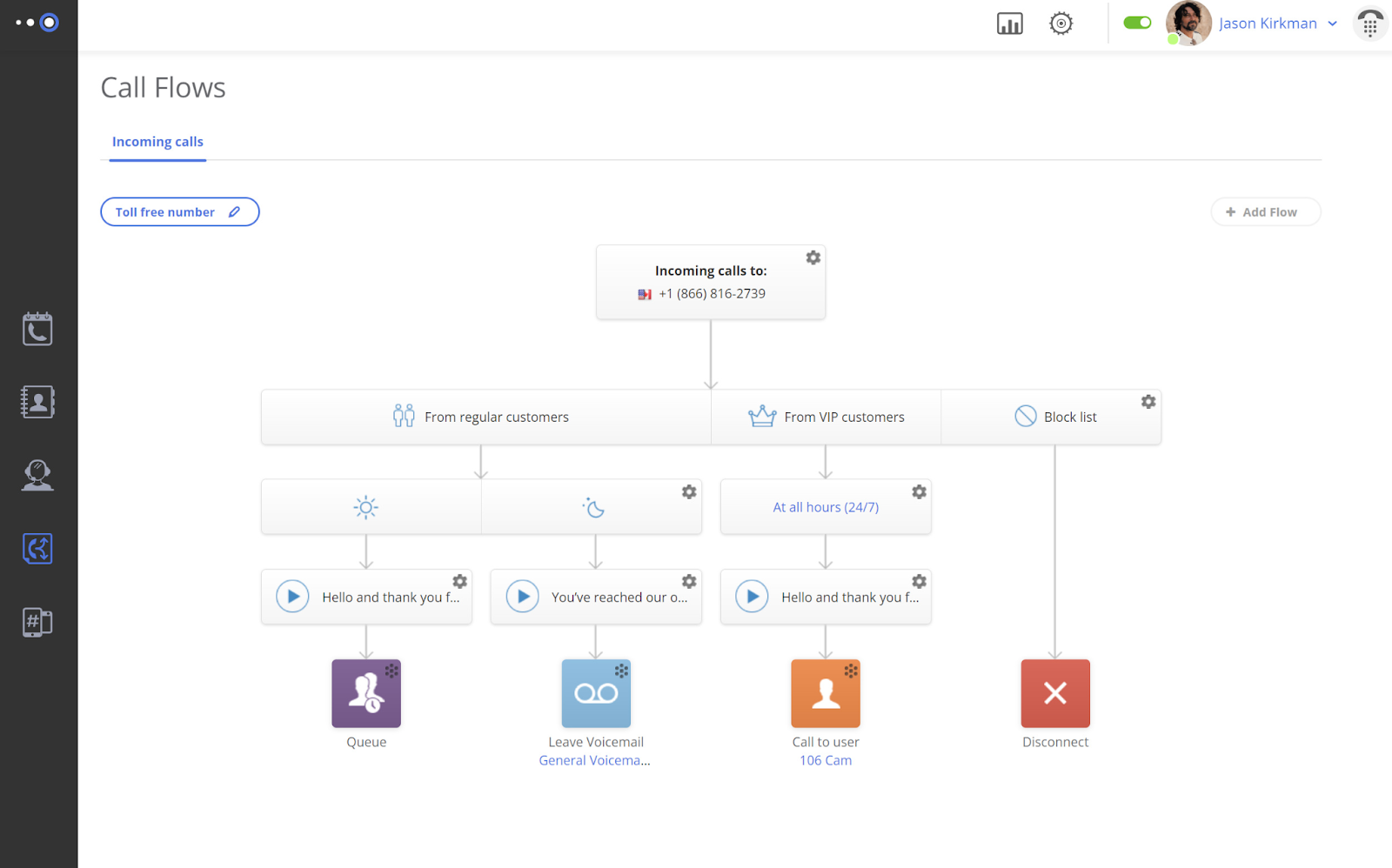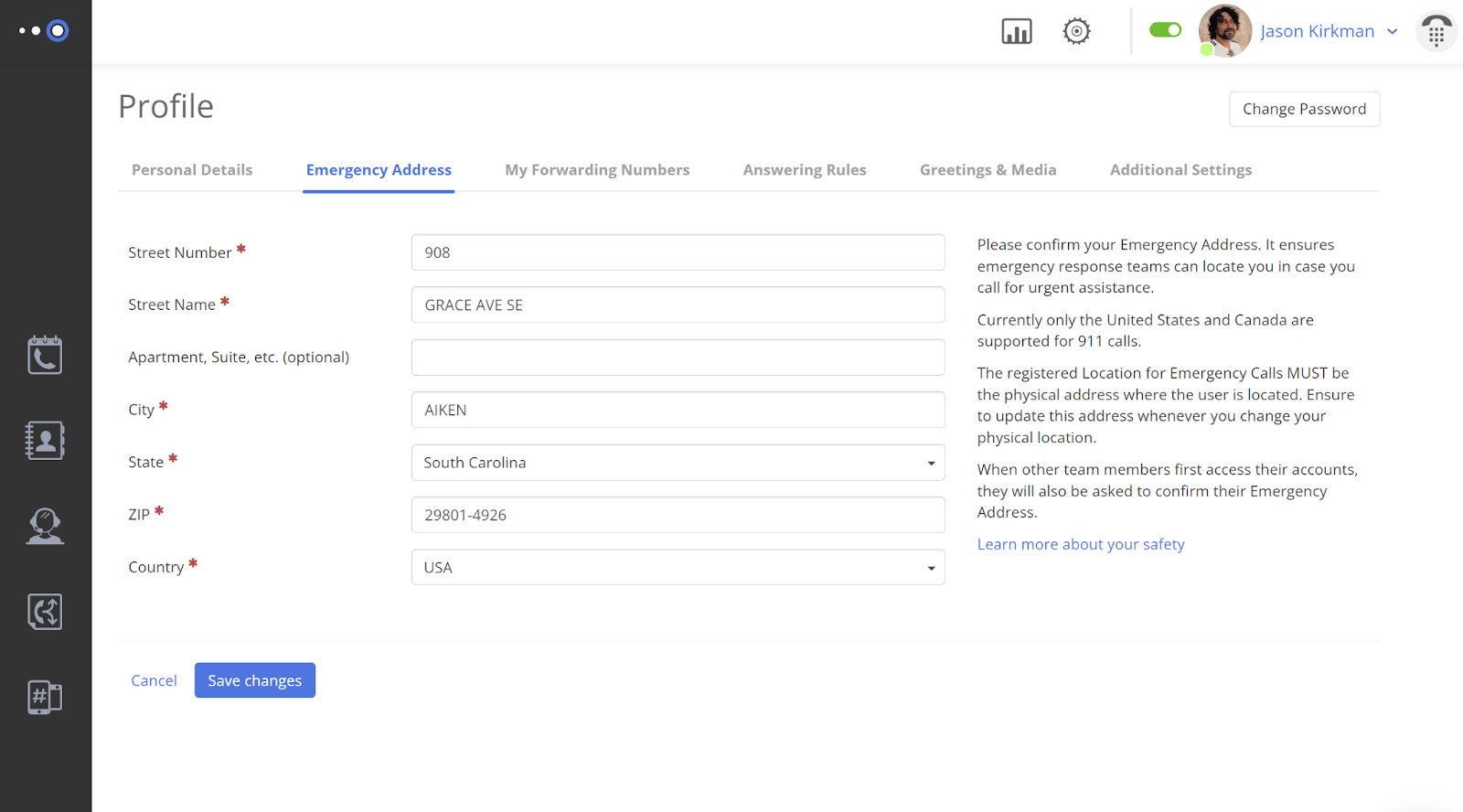Dive into a dedicated comparison of the two business phone providers: Omnivoice and OpenPhone. While both platforms deliver VoIP services, they each come with unique selling points and potential drawbacks. This detailed examination serves to enlighten you on each platform’s nuances, aiding you in choosing the solution that resonates with your business communication prerequisites.
Capabilities Overview: Omnivoice vs. OpenPhone
| Capabilities | Omnivoice’s Team Plan | OpenPhone’s Business Plan |
|---|---|---|
| Monthly Cost | $19 for 3 users | $23 per user |
| User Extensions | 3 | 1 |
| Included Minutes | 5,000 | Unlimited |
| Local/Toll-free Numbers | 2 | 1 per user |
| Transfer of Existing Number | Yes, for free | Free |
| Vanity Numbers | Yes, for free | Yes, cost can vary |
| Text Messaging | Available at $5/month | Unlimited |
| Contact Book | Included | Included |
| Business Hours | Yes | Yes |
| Call forwarding | Yes | Yes |
| Call queue | Yes | Yes |
| Ring groups | Yes | Yes |
| Call log | Yes | Yes |
| Voicemail | Yes | Yes |
| Voice-to-text transcription | Yes, for free | Yes |
| Mini-CRM functionality | Yes, for free | Yes |
| IVR | Yes, multi-level | Yes, basic |
| Call recording | Yes, for free | Yes |
| Conference calling | Yes, for free | Yes |
| Music on hold | Yes | Yes |
| e911 | Yes | No |
| Mobile app | Yes | Yes |
Omnivoice & OpenPhone: Platform Insights
Omnivoice: Omnivoice positions itself as a continually evolving platform, frequently updating and refining its features to keep pace with modern business needs. It focuses on small businesses and entrepreneurs, hence its affordable price. Omnivoice provides a wide range of powerful functionalities that remain user-friendly, addressing the dynamic requirements of your business.

OpenPhone: OpenPhone is recognized among call centers, yet it’s not without its constraints, especially for businesses in need of comprehensive telephony features. The service does not include automated texting without additional integration and possesses a more basic interactive voice response system. Its pricing is still in the affordable category, however, it is unlikely to be placed into the top-10 cheapest providers on the market.

Which Service Will Be Easier to Use:
Omnivoice: Omnivoice stands out for its smooth integration process, allowing companies to quickly implement their services. Its user-centric design ensures teams can easily adapt and exploit the platform’s broad capabilities to the fullest.

OpenPhone: OpenPhone competes well in terms of user experience, having a desktop application and a non-complex initial setup. The platform promises easy navigation but may not offer the same ease of integration into your existing processes, working better for larger teams who can afford to have more time to train.
Call Functionality:
Omnivoice: Omnivoice offers an extensive selection of call-related services. Its standout features include a system for call queues, group call support, complimentary voice-to-text transcription, and free call recording, all pivotal for quality control and regulatory compliance. Additionally, Omnivoice enhances customer engagement through value-added features such as Multi-level IVR, which is not provided by OpenPhone.
OpenPhone: OpenPhone sustains fundamental call services but doesn’t match up in terms of advanced features. It only offers one complementary local phone number, and the absence of a rudimentary IVR system indicates gaps in its offerings for businesses looking for a thorough telecommunication framework.
Security Protocols:
Omnivoice: Omnivoice takes emergency services seriously, integrating e911 to provide immediate help in crisis situations. Its dedication to security is further evidenced by its STIR/SHAKEN protocol compliance and strong data encryption methods, protecting against various telecommunication vulnerabilities.

OpenPhone: OpenPhone doesn’t explicitly mention e911 services or STIR/SHAKEN protocol adherence.
Which VoIP Service Should You Choose?
For small businesses and solopreneurs seeking a VoIP service with a great pricing system, an extensive suite of features, scalability options, and strong security protocols, Omnivoice is a commendable choice. On the other hand, mid-sized businesses may find OpenPhone more appropriate with its pricing options. Ultimately, the decision should correspond with your company’s operational needs and future growth plans, considering the distinct advantages each platform provides.
FAQ
- Contact Omnivoice Support: Reach out to customer support to begin the porting process.
- Provide Account Information: Share your OpenPhone account number and any required PIN or credentials.
- Verify Porting Eligibility: Confirm that your OpenPhone number is eligible for transfer to Omnivoice.
- Submit Porting Request: Complete and submit the necessary porting request form.
- Wait for Confirmation: Omnivoice will notify you with the expected porting timeline.
- Confirm the Transfer: Ensure that your number has been successfully ported to Omnivoice.
- Test Your Service: Test the number to make sure it is functioning properly with Omnivoice.
FAST • SECURE • RELIABLE
business communications

